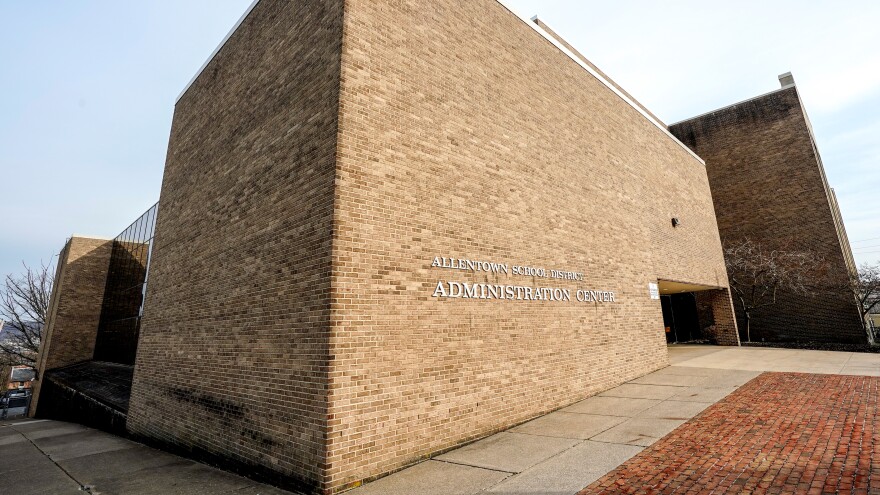ALLENTOWN, Pa. — As other Lehigh Valley school districts eye tax hikes to balance their budgets, Allentown School District will hold the line on school property taxes for the third consecutive year.
The school board on Thursday approved a $481.5 million proposed final budget with no tax increase.
That keeps the district's property tax rate at 22.6432 mills, meaning the owner of a home valued at $100,000 for tax purposes would again pay an annual $2,264.32 tax bill.
Superintendent Carol Birks said that funding will go toward supporting district goals, such as increasing student achievement in math and reading.
“Allentown was able to receive a lot more funding resources than we previously have."Superintendent Carol Birks
Other goals include increasing graduation rates and decreasing chronic absentee rates.
According to a budget presentation, the largest chunk of the district’s revenue comes from state funding. ASD is projecting state funding will account for 67% of its 2025-26 budget revenue at $333.5 million.
“Allentown was able to receive a lot more funding resources than we previously have,” Birks said.
That’s because of increased historic state investment in recent years, especially for large, poor districts such as Allentown — 91% of the district’s 16,712 students are considered economically disadvantaged.
Additional state funds were allocated to those districts during the last budget cycle in response to a Commonwealth Court ruling that deemed Pennsylvania’s school funding system unconstitutional.
The judge found the system was unfavorable toward students living in poor neighborhoods.
Gov. Josh Shapiro has included the adequacy supplement funds in his budget proposal again this budget cycle.
“What the funding lawsuit really said was, ‘Hey, these districts were underfunded for years,’” said Jeffrey Cuff, Allentown's interim chief financial officer.
“So what they did was they went back through and identified those districts and added money to those districts, trying to make them whole.”
State Sen. Nick Miller told LehighValleyNews.com that Superintendent Birks' leadership is also part of the reason for the district's recent financial success.
She has helped ASD strengthen it's finances and make long-overdue investments in academics, extracurricular activities and school facilities, Miller said in a statement.
"By allocating the necessary time and funding to these initiatives we are poised to create meaningful opportunities for every student," said Miller, a former Allentown school director.
ASD financial strategies
ASD has found ways to save money internally by getting creative and focusing on efficiency.
The district has taken a “stricter and stronger approach” to its cash management and has invested money to get a higher yield on interest, said interim CFO Cuff. ASD is recognizing at least $2 million more per year in interest.
“The district is in a very strong state financially."Ian Tyson, a director with the financial consulting group PFM
Additionally, the district has focused on controlling spending where it can, such as on overtime costs.
ASD also has worked to maximize its grant funding and has taken better advantage of transportation and food subsidies, he said.
“The district is in a very strong state financially,” said Ian Tyson, a director with the financial consulting group PFM.
According to PFM projections, the district’s fund balance, or surplus, sits at about $37.8 million.
With the state’s adequacy supplement investment, ASD won’t have to contend with a deficit in any budget cycle through 2027-28, based on current PFM projections.
Without the state’s adequacy funding, though, the district could see a $2.5 million deficit by 2027-28, requiring a 1% property tax increase in each of the next two budget cycles, Tyson said.
Those projections, however, do not take into account spending for any future construction or renovations based on the results of a recent feasibility study.
ASD is currently developing a capital plan to present to the school board.
School directors will approve the final 2025-26 budget on June 26.


